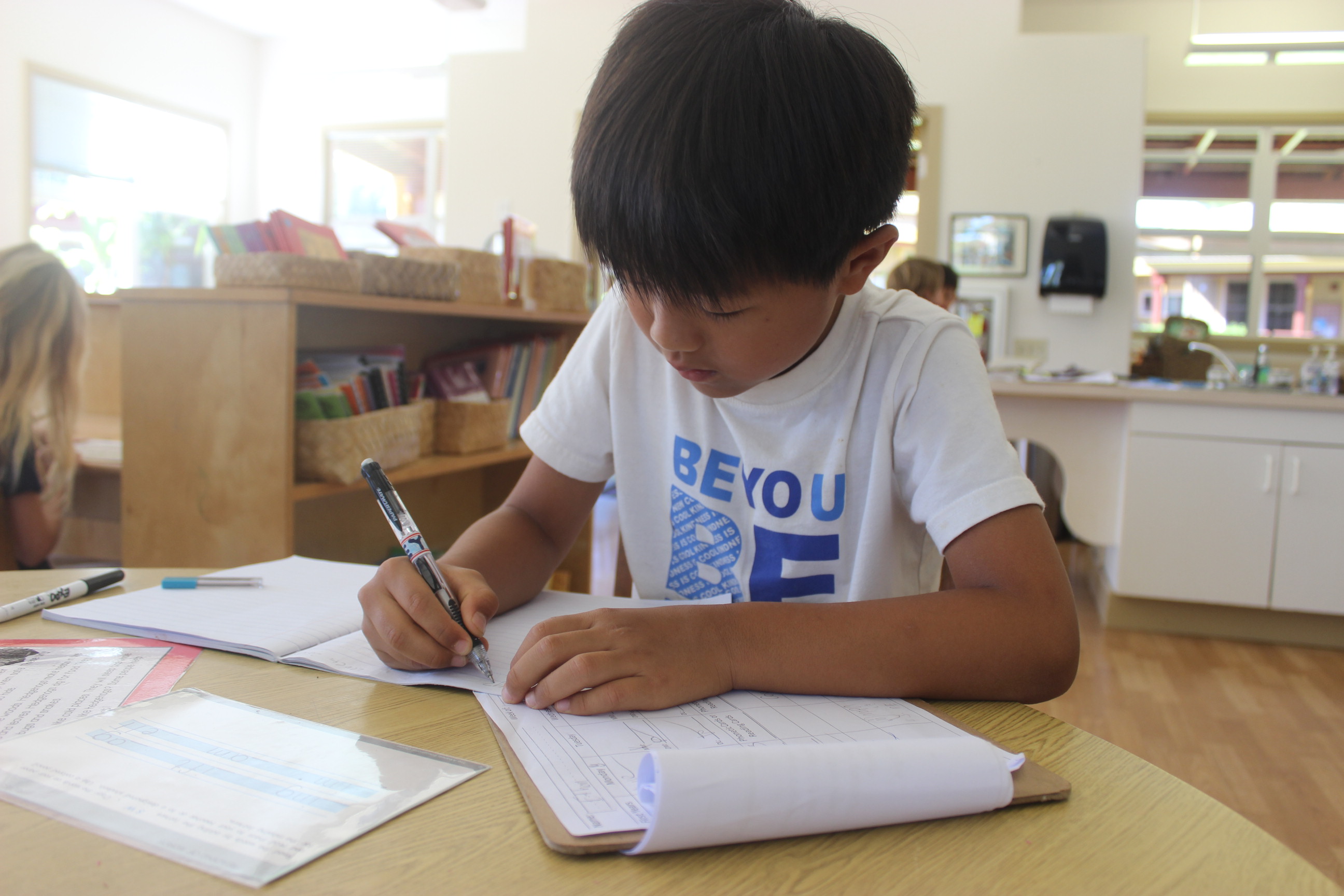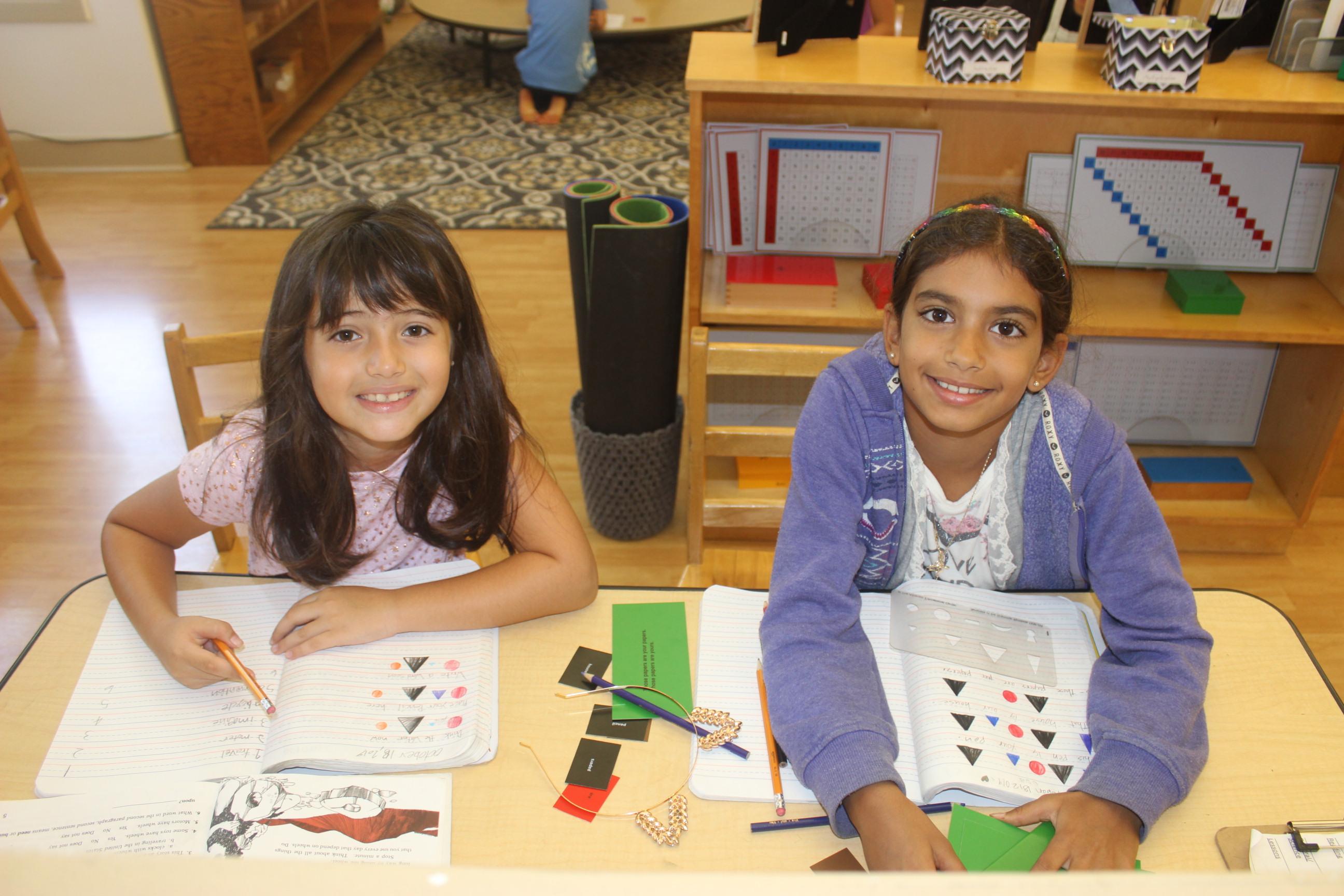Lower Elementary Program
Lower Elementary Program – (Ages 6 years through 9 years, Grades 1 through 3)
Children in the lower elementary environment are entering the second plane based on Montessori’s philosophy of human development. The elementary years (ages six to twelve) can be identified by several psychological characteristics: the reasoning mind, a focus on social relationships, a sense of justice, imagination, interest in the extraordinary, hero-worship and an enormous potential for work. The lower elementary environment takes into consideration these characteristics in order to best support the children in the second plane of development.
Cosmic Education is the name given to the approach that Dr. Montessori developed for the elementary child. The child at this age has the ability to imagine that which cannot be seen or that which does not exist, the power to reason through to a conclusion, the desire to work with others, and the ability to do great work. These elements are all in play in the lower elementary classroom.
To support this learning, the lower elementary environment is designed for exploration and discovery. Hands-on materials allow the children to manipulate objects and to the see the problems’ resolutions concretely. Curriculum in all academic areas demand use of these materials and is consistent year-to-year, while emphasis can vary within a three-year work cycle and be dependent on students, goings on in the community and school-wide expectations.
The students take charge and lead almost all aspects of the community: from classroom jobs to engaging in peacekeeping dialogue, to planning events and areas of study. Children in the lower elementary environment express a genuine interest in the ideas and input from his/her peers. It is a very social stage of development and the teacher affords that there are ample opportunities to work collaboratively.
The freedom to explore different areas of the curriculum is vital to the program and essential in constantly satisfying the student’s inherent curiosity. Following the Montessori method, the teachers are continuously asking what is relevant to the developmental needs of each child and affording them direction as necessary.



